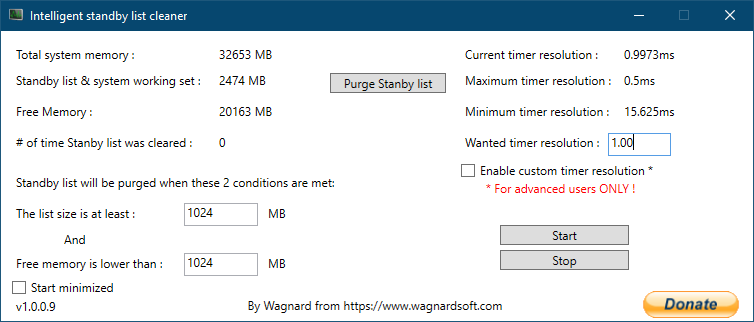- Joined
- Jun 29, 2019
- Messages
- 136 (0.06/day)
| Processor | AMD Ryzen 5 5600X @4.8Ghz PBO 100W/60A/90A |
|---|---|
| Motherboard | MSI B550-A PRO |
| Cooling | Hyper 212 Black Edition |
| Memory | 4x8GB Crucial Ballistix 3800Mhz CL16 |
| Video Card(s) | Gigabyte RTX 3070 Gaming OC |
| Storage | 980 PRO 500GB, 860 EVO 500GB, 850 EVO 500GB |
| Display(s) | LG 24GN600-B |
| Case | CM 690 III |
| Audio Device(s) | Creative Sound Blaster Z |
| Power Supply | EVGA SuperNOVA G2 650w |
| Mouse | Cooler Master MM711 Matte Black |
| Keyboard | Corsair K95 Platinum - Cherry MX Brown |
| Software | Windows 10 |
Hi,
My question might seem a bit bizarre, let me explain myself real quick:
So I noticed a strange thing with Windows' memory management. My Chrome is always loaded with tabs, uses at least 2.5-3.5GB. When I launch a game that uses quite a bit of RAM, over the course of about 10 minutes, Windows keeps flushing Chrome's data from the RAM to the pagefile on my SSD even though my total RAM usage is around 10-11GB and I have 16 gigs total, not even close to maxing it out.
This is really annoying for me since when I close my game and go back to Chrome, it lags a bit as it tries to retrieve the data from the SSD. It's completely unnecessary since I still have plenty of free RAM. It would be understandable if I started hitting the 14.5-15GB mark. Also, I paid for 16 gigs of RAM, I don't want Windows deciding an SSD is better instead and lock me up at like 8-9GB.
I don't want to disable the pagefile, but would like to know if anyone has an idea on how to change the trigger point of when Windows decides it's high time to unnecessarily use up those write cycles on your SSD.
I want to keep the pagefile, but have it kick in only when my RAM usage hits the 85-90% mark. If anyone has an idea it would be great. I tried looking this up on google but no dice, there's only the usual tutorials on how to expand or reduce the pagefile size...etc.
Thanks.
Screenshots showing what I mean:
(Yes that's Trine 4 don't judge me)
My question might seem a bit bizarre, let me explain myself real quick:
So I noticed a strange thing with Windows' memory management. My Chrome is always loaded with tabs, uses at least 2.5-3.5GB. When I launch a game that uses quite a bit of RAM, over the course of about 10 minutes, Windows keeps flushing Chrome's data from the RAM to the pagefile on my SSD even though my total RAM usage is around 10-11GB and I have 16 gigs total, not even close to maxing it out.
This is really annoying for me since when I close my game and go back to Chrome, it lags a bit as it tries to retrieve the data from the SSD. It's completely unnecessary since I still have plenty of free RAM. It would be understandable if I started hitting the 14.5-15GB mark. Also, I paid for 16 gigs of RAM, I don't want Windows deciding an SSD is better instead and lock me up at like 8-9GB.
I don't want to disable the pagefile, but would like to know if anyone has an idea on how to change the trigger point of when Windows decides it's high time to unnecessarily use up those write cycles on your SSD.
I want to keep the pagefile, but have it kick in only when my RAM usage hits the 85-90% mark. If anyone has an idea it would be great. I tried looking this up on google but no dice, there's only the usual tutorials on how to expand or reduce the pagefile size...etc.
Thanks.
Screenshots showing what I mean:
(Yes that's Trine 4 don't judge me)
Last edited:








